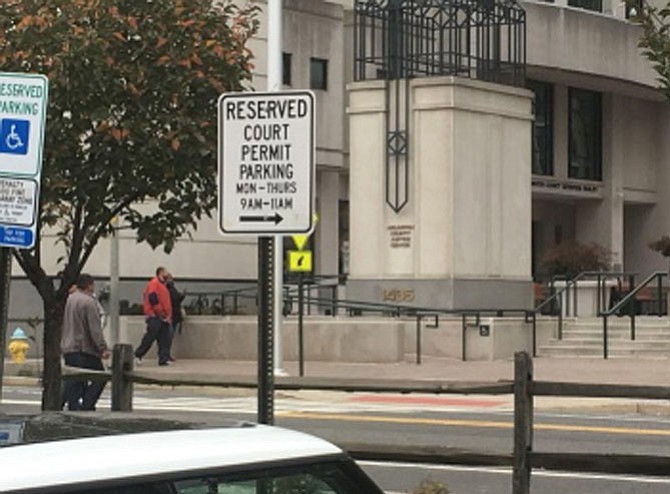The Arlington County Board voted unanimously at its Dec. 13 meeting to approve new measures aimed at curtailing predatory towing practices in Arlington. The most controversial measure was one requiring a second signature. The Second Signature requirement requires the written authorization of the property owner or an agent for each individual trespass tow conducted at a non-residential property during normal business hours.
“Predatory towing that happens on purpose is a problem,” said Takis Karantonis from the Columbia Heights Civic Association. “Everybody is aware of that, everybody knows about it, and most people have a firm idea where the hotspots are. That’s not a good thing. This is an arbitrary practice.”
While local residents came out to express their support for the towing restrictions, the Chamber of Commerce and many local business institutions shared concerns that the second signature requirement would but an undue burden on businesses.
Chris Raines, a manager at the Holiday Inn Rosslyn-Key Bridge, opposed the second signature requirement.
“Keeping ample parking in our lots is supremely important,” said Raines, adding that their proximity to the Rosslyn Metro station makes them a target for people parking illegally for Metro uses.
Kate Bates, president and CEO of Arlington Chamber of Commerce, said the chamber had voted unanimously against the second signature requirement.
On the County Board, John Vihstadt also expressed his opposition to the second signature. Vihstadt noted that confirmation to tow is likely to come from someone off-site. Vihstadt also said he was concerned by commentary from the business community who said requiring a member of the business to come out and confirm a second signature would take someone out of the store during business hours.
“We need progress,” Vihstadt said, “but [it] won’t be from county government mandating second signature.”
For County Board chair Libby Garvey, the second signature requirement was an imperfect solution but one the county would continue to develop. Garvey said county staff would continue to look for alternative solutions to the second signature requirement before the policy is scheduled to go into effect in July.
But the proposal, second signature requirements included, were described as positive steps forward for the county.
“[Contracts employing spotters] created an unfair financial incentive for towing firms to engage in overly aggressive and unnecessary towing practices,” said County Board member Katie Cristol. “What does that look like? Despite a different picture painted by a number of members of our business community here, we know what that looks like; we’ve seen that in dozen if not hundreds of letters. It looks like real impact on our retail environment.”
County Board member Jay Fisette, who had been one of the leading voices calling for towing reform, said the large quantities of complaints and letters about predatory towing showed that, despite the protests from the business community, there was still need for extensive reform.
“If this is a legitimate tow, they’re going to be towed and should be towed,” said Fisette. “This will allow, with nominal impact, all of those legitimate tows to occur.”
The second signature requirement was voted on separately from the main legislation. The board approved of the requirement with Vihstadt voting in opposition. For the main body of the towing reform legislation, Vihstadt said the reforms did more benefit than harm.
Other changes within the legislation aim at protecting vehicle owners. Tow truck drivers will be required to photograph the vehicle at all four corners, giving the vehicle owner a safeguard and towers protection against false damage claims. Towing receipts will now also include a disclosure that photos and/or video evidence are available upon request as well as contact information for the county office that handles trespass towing. The reforms also include new requirements for signage and markings on the interior of parking lots and facilities to provide clear information about parking restrictions.
The County Board voted unanimously to approve the reforms. The implementation of the second signature amendment is delayed until July 1, 2017. The County Board further directed the county manager to work with stakeholders to identify alternative strategies to mitigate aggressive towing practices and provide an interim report.
“I respect tremendously the rights of property owners to protect their property from trespassers,” said Cristol,”but when the exercise of that right takes a form, with the practice of spotting, it runs so counter to other investments in the form of time and money and policy and the kind of community and retail environment that I think we have an obligation as government to act.”
